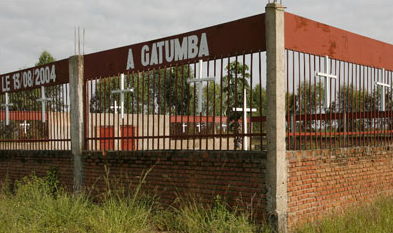Heinous Massacres Against Congolese Tutsi (Banyamulenge) on August 13, 2004 at Gatumba Refugee Camp in Burundi

Banyamulenge are Congolese people; they mainly live in high peak plateaus located in Uvira, Fizi and Mwenga Zones; in Bukavu and Uvira cities, all in South Kivu Province in Democratic Republic of Congo, but they also live in other provinces of country. We have to remind that Banyamulenge live in DRC from 17th century.
For a better understanding of Gatumba massacres, a brief overview on a tragic political history that Banyamulenge people have gone through since a long time is of a paramount importance.
Since the colonial era, Banyamulenge have been undergoing discrimination and exclusion whereby they have been treated by the colonial rulers as immigrants from Rwanda who could not exercise any civic right in Congo. Such exclusion has resulted in a ministerial notice (circular) issued by Minister of internal affairs of Belgium at the colonial period Louis Franck on November 8, 1920, requiring the Banyamulenge kingdom (chefferie de Kayira) to be annexed to Bafulero one. On November 5, 1933, a decision ordering the merger of the above-mentioned Kingdom has been taken; since then, Banyamulenge started to be unjustly discriminated and excluded in their own country by other ethnics, such as Bambembe, Bafulero and Bavira supported by the Government.
The situation worsened during Mulele rebellion in 1964, over thousand Banyamulenge have been systematically killed in different villages: Nagiheri, Lulenge, Gatongo, Baraka, Kirumba and Ngandja. Furthermore, in 1982 until 1987, Banyamulenge have been refused the right to run for parliamentarian elections on grounds, some of them have been arrested, others have been killed. During all this period, the Government of Ex-Zaire did nothing to halt this bad treatment to which Banyamulenge people were subjected even Banyamulenge were fighting against armed groups in the side of the government.
The climax in this sequence of events was the period between 1995- 1996 before AFDL war broke out. During this period, Banyamulenge and all other Tutsi origin people have been brutally tortured, jailed, looted and even killed by Government soldiers, local authorities as well as civilians from other Congolese ethnic groups. All those violence were supported by the government. In September 1996, the government of DRC represented by the vice-governor of southern Kivu Province in the name of LWABANJI LWASSI NGABO took the decision publicly asking Banyamulenge to leave from Congo within six days, otherwise to be killed by fire.
In that time Killings took place in Ngandja-Milimba, Kisengeti, Fizi, Baraka Bibokoboko, Mboko, Lweba, Kamanyola, Sange-Mutarure, Bwegera, Shabunda, in Bukavu, Uvira, Kinshasa, Lubumbashi, Kisangani, Kindu and Kalemie cities claimed the lives of more than four thousand people among others women and children. Meanwhile, the political power continued through government medias, to ask people to kill Banyamulenge who were considered as snake. All those events are evidence that the Genocide against Banyamulenge was planned and implemented as the days go on.
In 1998, when the 2nd war broke out between RCD and the Government, late president Laurent Désiré Kabila appeared in Medias with a machete calling upon the extermination of all Tutsi wherever they were in Congo. The foreign affairs Minister Elodia Dombasi declared that Banyamulenge were vermin that must be eliminated. Those speeches have been largely implemented throughout the country by political authorities, as well as military officers in different areas of the country through the media, asking to eliminate waste.
Massacres orchestrated by both civilians and military against Tutsi took place in different areas. The death tall stood as follows: Kinshasa, Lubumbashi, Kisangani, Kaleme, Vyura-Moba more than thousands. Moreover, 120 Tutsi soldiers who were undergoing a military course in Kamina have been blown out in a house full of explosives (bombs). In addition, targeted attacks against Banyamulenge in different villages have been significantly increased henceforth, notably in Road Uvira-Bukavu and Uvira-Fizi.
government of DRC in conjunction with the Local authorities in Southern Kivu, not only political authorities but also military one killed Banyamulenge in Uvira and Bukavu cities. Consequently, the survivors Were received as refugees in Rwanda and Burundi. Banyamulenge who had sought refuge in Burundi (Gatumba) have been savagely slaughtered, killed, incinerated by Congolese soldiers in conjunction with FNL-PALIPEHUTU and Interahamwe, while they were under protection of the international community. The Government in Kinshasa has remained silent and no investigation has been carried out so far to bring perpetrators to book.
